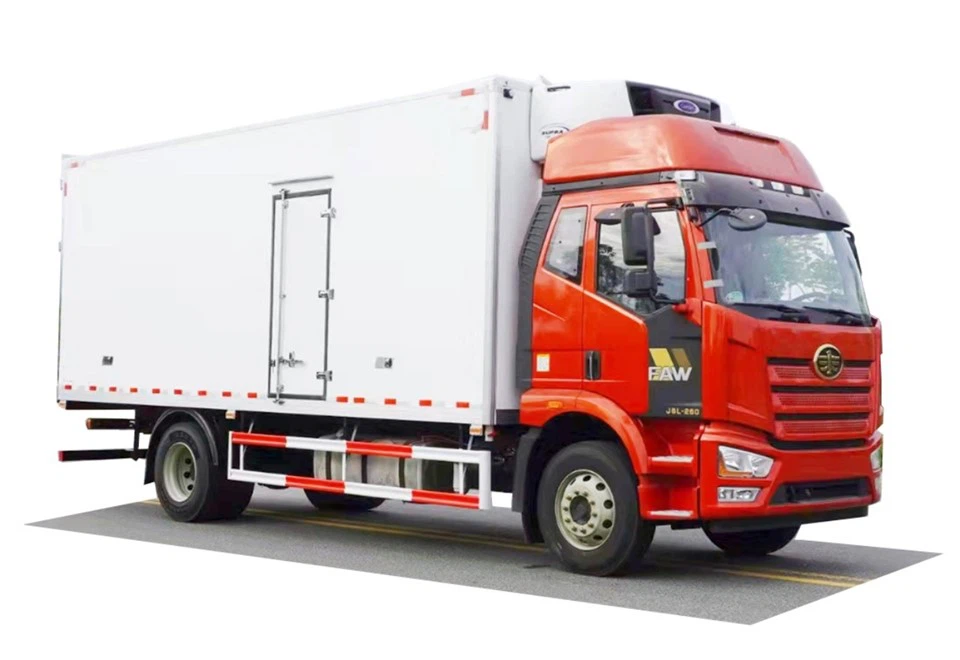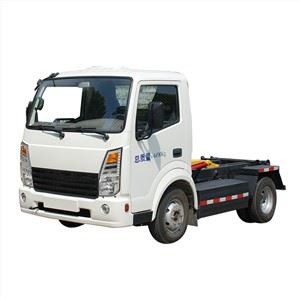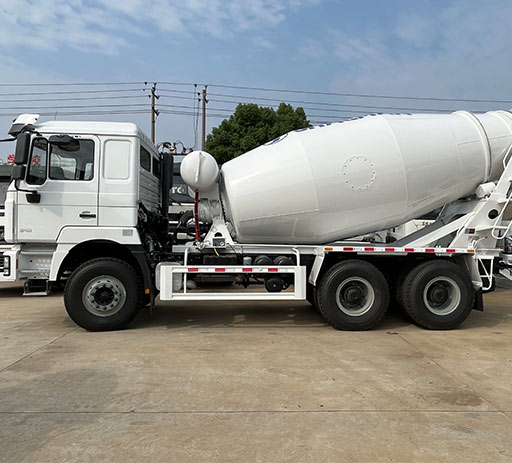A Complete Guide to Delivery Trucks: Understanding and Optimizing Your Logistics

Introduction
In the world of logistics and distribution, delivery trucks play a crucial role. They are the backbone of supply chains, ensuring that goods reach their final destinations efficiently and effectively. With the rise of e-commerce and the increasing demand for quick delivery options, understanding the ins and outs of delivery trucks has never been more important. This article serves as an extensive guide covering everything from types of delivery trucks to operational tips, regulations, and best practices for maximizing efficiency.
Types of Delivery Trucks
1. Light-Duty Trucks
Light-duty delivery trucks, often classified as Class 1 through Class 3, generally include vehicles with a gross vehicle weight rating (GVWR) of up to 14,000 pounds. They are commonly used for local deliveries and are ideal for navigating urban environments.
Examples:
- Ford Transit: Known for versatility and cargo space.
- Mercedes-Benz Sprinter: Offers advanced safety and technology features.
2. Medium-Duty Trucks
Medium-duty trucks (Class 4 through Class 6) have a GVWR between 14,001 and 26,000 pounds. These trucks are suitable for larger delivery operations and can handle heavier loads.
Examples:
- Isuzu NPR: Known for its maneuverability and fuel efficiency.
- Hino 268: Popular among delivery companies for its reliability.

3. Heavy-Duty Trucks

Heavy-duty trucks, classified as Class 7 and Class 8, have a GVWR over 26,000 pounds. These trucks are typically used for long-haul deliveries and can transport substantial quantities of goods over longer distances.
Examples:
- Freightliner Cascadia: Ideal for long-haul deliveries with high fuel efficiency.
- Kenworth T680: Offers advanced aerodynamics for improved performance.
Operational Costs of Delivery Trucks
Understanding the operational costs associated with delivery trucks is crucial for any logistics manager. Below are the primary factors to consider:
1. Purchase or Lease Costs
| Cost Type | Purchase | Lease |
|---|---|---|
| Upfront Payment | High | Lower |
| Long-term Financial Implications | Depreciates | Monthly Payments |
2. Fuel Expenses
Fuel costs significantly impact operational budgets. Selecting fuel-efficient trucks can help save money in the long term.
3. Maintenance and Repairs
Regular maintenance is essential to keep delivery trucks in optimal condition. Develop a preventive maintenance schedule to avoid costly repairs.
4. Insurance and Registration
Insurance and vehicle registration can also add to overall costs. Ensure adequate coverage tailored to your delivery operations.
Legal and Safety Regulations
Understanding the regulations surrounding delivery trucks is essential for compliance and safety on the road.
1. Weight Limits
Each state has specific weight limits for vehicles on public roads. Ensure your delivery trucks are compliant to avoid penalties.
2. Driver Qualifications
Drivers must hold appropriate licenses (Class C, Class B, or Class A) depending on the size and weight of the delivery truck. Regular training on best driving practices is also crucial.
3. Inspection Requirements
Regular inspections help ensure that vehicles are roadworthy and safe to operate. Different states have different requirements, so it’s essential to stay informed.
Delivery Truck Technology
Technological advancements have transformed the delivery industry, improving efficiency and tracking.
1. GPS Tracking
Utilizing GPS technology allows for real-time tracking of delivery trucks, enhancing logistics operations.
2. Fleet Management Software
Fleet management solutions assist in scheduling, route optimization, and maintenance tracking, helping to ensure that delivery operations run smoothly.
3. Electric Delivery Trucks
The rise of electric vehicles (EVs) presents a significant opportunity to reduce environmental impact and fuel costs. Many companies are transitioning to electric delivery trucks.
Best Practices for Delivery Operations
Implementing best practices can streamline delivery operations and improve overall performance.
1. Route Optimization
Utilizing route optimization software can help significantly reduce delivery times and fuel costs. Consider factors such as traffic patterns and customer locations.
2. Customer Communication
Keeping customers informed about their delivery status builds trust and satisfaction. Use automated notifications for estimated arrival times.
3. Training Drivers
Investing in driver training programs enhances safety and efficiency. Focus on defensive driving, route management, and customer service skills.
Practical Tips for Selecting Delivery Trucks
Choosing the right delivery truck is crucial for operational success. Here are some tips:
1. Assess Your Delivery Needs
Evaluate your delivery volume, types of products, and routes to determine the necessary truck size.
2. Consider Fuel Efficiency
Opt for models that offer better fuel economy to reduce ongoing costs.
3. Evaluate Maintenance Requirements
Select trucks known for reliability and with a strong support network for parts and service.
4. Test Drive Multiple Models
Always test drive different models to assess handling, comfort, and visibility.
FAQs about Delivery Trucks
1. What is the average lifespan of a delivery truck?

The average lifespan of a delivery truck is about 10 to 15 years, depending on maintenance and usage.
2. How much can a delivery truck carry?
This depends on the truck type; light-duty trucks can carry 1,000 to 3,000 lbs, while heavy-duty trucks can carry over 80,000 lbs.
3. What are the benefits of electric delivery trucks?
Electric delivery trucks reduce fuel costs, minimize emissions, and often have lower maintenance costs.
4. What kind of insurance do I need for a delivery truck?
Basic liability insurance is required, but you may also want coverage for cargo, physical damage, and comprehensive accident policies.
5. How can I improve delivery efficiency?
Implement route optimization, enhance communication with customers, and invest in technology like tracking software.
6. Are there grants available for purchasing delivery trucks?
Yes, some government and private programs offer financial assistance for purchasing eco-friendly or electric delivery trucks.
